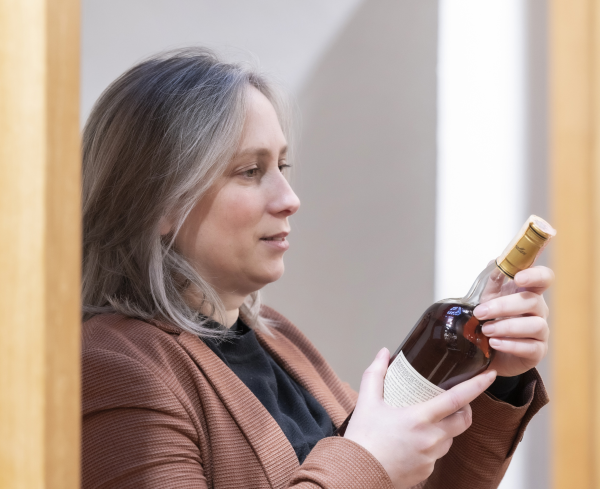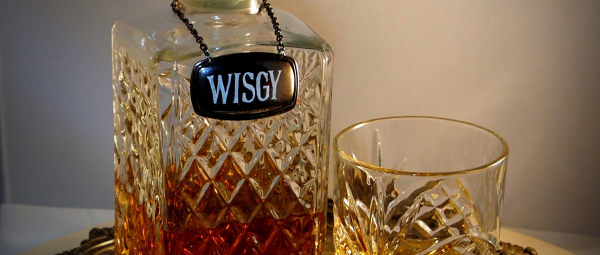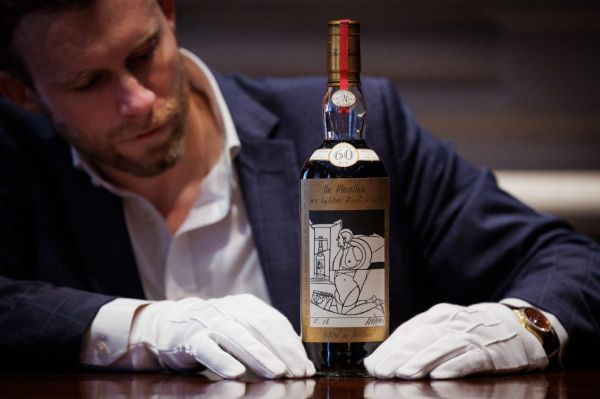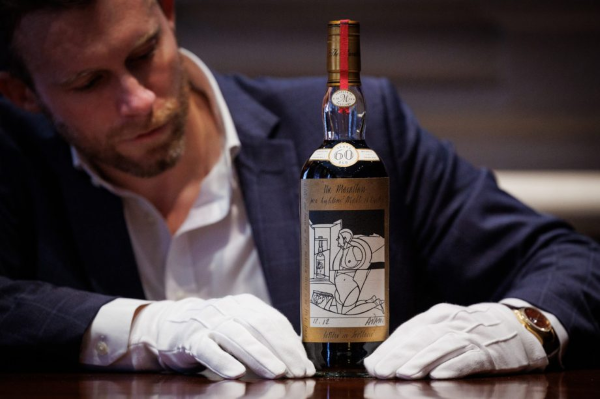Wisgy In The Jar
The explosive growth of whisky's secondary market has sucked in all manner of low-life peddling counterfeit bottles and fictional casks. To protect investors in these murky waters there's a new consultancy in town as Tom Bruce-Gardyne reports …
From that nursery of drinks industry talent called Oddbins, Isabel Graham-Yooll progressed to Jeroboams, selling wine to private clients, before becoming the spirits buyer for Milroy's of Soho. In recent years she has been director of Whisky.Auction, part of Sukhinder and Rajbir Singh's Whisky Exchange empire which they sold to Pernod Ricard in 2021.

Last month, Isabel launched Wisgy - her new, independent consultancy with a mission ‘to help clients navigate old and rare spirits with confidence in a rapidly expanding and sometimes bewildering market' to quote the website. "With the growth of the whisky investment market, there has been a growth in investors who don't know enough," she explains. "There's a huge knowledge gap. People are investing hundreds of thousands of pounds, and they're doing it on trust."
Explaining how the secondary market for Scotch whisky attracts three types, she says: "I used to have a Ven diagram in my head of collectors, consumers and investors, but I came to realise you can't really be just one. If you're an enthusiast, you can very quickly become an investor. If there's something you want to drink you have to buy when it's cheaper, and when you start knowing that, you start buying a few more because that funds your hobby."
But these are unregulated waters in whose depths swim sharks ready to exploit that knowledge gap, and who are attracted by the eye-popping prices at auction. Last November, Sotheby's knocked down a 1926 bottle of The Macallan for £2.1 million (US$2.7m), making it the most expensive whisky ever sold until an Irish bottle complete with a Faberge egg was bought for US$2.8m in January.
"I know what auctions I trust, and you'd be surprised to know what they are," says Isabel, who won't name names. Off the record, she mentions one well-established auction house who used to ignore her efforts to point out that a particular whisky they were selling was probably a fake.

In 2017 she helped the Met's organised crime squad take down a notorious whisky forger in London's Finchley who had tried to con her and her team with an extraordinary collection that didn't quite add up. Hundreds of bottles were seized in a dawn raid along with capsules, wax, spirit caramel and other tools of the trade.
If it ever features in a Netflix drama, the venue might shift from Finchley, but Isabel insists there's nothing glamorous about whisky forgers. She remembers one of them trawling the rare spirits shows with some ‘precious' bottle in hand, offering people a dram. "He was going round showing off about his generosity, and about the fact he's got this super rare bottle," she says. "And also showing off that privately he knows he's fooling these individuals. It's quite sociopathic - it's like you hate your fellow enthusiasts enough to do that to them."
Authenticating bottles relies on chemical, physical and historical analysis, and in her view: "Historical analysis is probably the most powerful. Was that bottle ever produced with that label, that capsule and that glass in that era? Was the ink and paper used at that time?" Once you resort to chemical analysis by extracting a few drops with a needle, "all you're trying to do is prove something you already know," she says.
Beyond the fake bottles are those dodgy whisky casks that may or not exist that are peddled by snake-oil salesman promising guaranteed returns. These rogue traders pop up, disappear and re-emerge with lavish videos and seeming endorsement in the mainstream media. Their in-house ‘seasoned whisky expert' will tell readers of the retired bank manager from Stoke for example, who made a fortune from his cask of Macallan. Bought in the early 1990s for £2000, he flogged it for £200,000 some years later. That could be you – is the implication, click rogue trader website and prepare to be scammed.

Image Credit: Sotheby's
"The ASA (Advertising Standards Authority) keep banning people from saying things like ‘we had a customer who made a 36.6% return in just three years'," says Isabel. "It may be absolutely true, but this is a pyramid scheme where some of the very early investors have done very, very well. Lots broke even and lots bought casks that didn't exist."
It seems there are plenty of over-priced casks out there with unscrupulous traders desperately seeking to off-load them onto the next layer down the pyramid. To muddy the waters still further, she says: "I think there are at least three ‘independent' authorities claiming to be looking out for your best interests, but they're run by the people who run these cask trading companies." The Scotch Whisky Association could play a much stronger role in her view, but for whatever reason it chooses not to.
Her simple advice to aspiring investors and collectors is ‘educate your palate' to help understand why different whiskies have different values. It also makes sense to learn something of the industry you're investing in, which is where these Whisky News columns come in - to shed light on aspects of the trade we think are interesting and relevant.

Award-winning drinks columnist and author Tom Bruce-Gardyne began his career in the wine trade, managing exports for a major Sicilian producer. Now freelance for 20 years, Tom has been a weekly columnist for The Herald and his books include The Scotch Whisky Book and most recently Scotch Whisky Treasures.
You can read more comment and analysis on the Scotch whisky industry by clicking on Whisky News.
